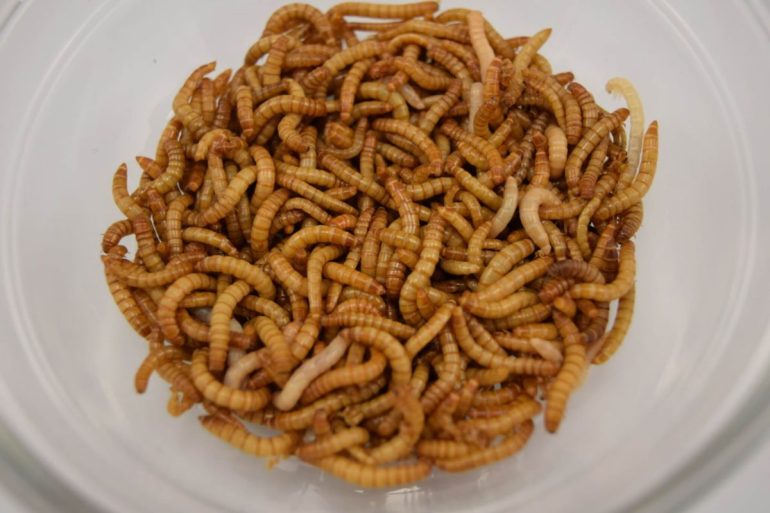Scientists from the Faculty of Agronomy at Brno’s Mendel University (MENDELU) are investigating the nutritional benefits of using insect powder in meat products.
Insects are increasingly discussed as a potential source of protein for the future. Small larvae contain a high amount of protein and healthy fats, and compared to other livestock, insect farming also appears to have less impact on the environment.
The first results from the MENDELU team show that the addition of insect-based products could improve the nutritional value of meat. As part of the initial analysis, the researchers focused on two types of meat products: soft salami and sausages. In addition to the usual ingredients, they also introduced cricket powder in different proportions, before testing the chemical composition and textural properties, and performing a microbiological and sensory analysis of the products.
“One might argue that it is counterproductive to replace meat protein with insect protein,” said project leader Adam Kovál, from the Institute of Food Technology. “For example, cricket powder contains 60% protein in dry matter, while fresh meat, which naturally also contains water, has a protein content of around 20%.”
The researchers found that it was more appropriate to add the insect components to soft salami, where the powder is better dispersed and creates a homogeneous structure. They also established that in order for the product to be sensorily acceptable, the additives should not exceed 10%, as cricket powder is quite aromatic, and has an unusual taste and smell. However, according to Kovál, it is only a matter of time before consumers become accustomed to insect supplements.
The team’s goal is to create a recipe that meat product manufacturers could potentially use in their operations. In the future, they would also like to focus on other types of food, such as baked goods. According to Kovál, products with various additions of insect powders could become a regular part of the range offered by retail chains within ten years.
The use of insects in food has been permitted by legislation for some years now. In 2015, a regulation was issued that designated insects as new food, and as of 2019, insects are classified as livestock, and there are already Czech farms approved for the production of insects for food purposes. In total, there are approximately 2,000 species of edible insects, but only four have been approved for use so far.
In addition to the high content of complete proteins, the advantage of insect supplements is also that their proteins are easily digestible for humans. Insect farming is also considered very ecological.
“It’s still under research. But the latest data show that insects need little feed and water, and compared to ordinary farm animals, they also produce less carbon dioxide,” said Kovál.
However, the production of insects is still not a cheap matter. According to Kovál, the situation could change if the demand for this type of raw material increased significantly. In this way, even insect products already available could become cheaper.
“What we see in stores are mostly insects in their original form,” concluded Kovál. “It is primarily about experiential gastronomy. You can buy bags with dried larvae or crickets in various flavours. In this way, manufacturers try to make people aware of insects – so that they stop being afraid of them and eventually become open to consuming food, say, with a processed form of edible insects.”






